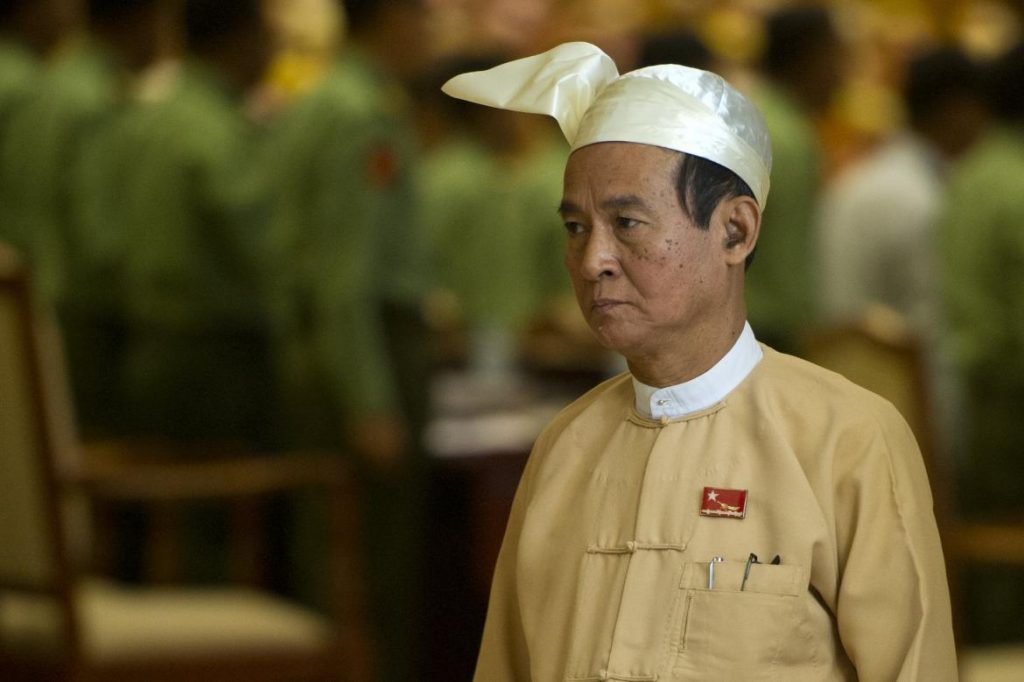By NYAN HLAING LYNN | FRONTIER
NAY PYI TAW — Pyithu Hluttaw Speaker U Win Myint has fired back at military claims that parliament’s decision to remove guest registration requirements was hampering security forces in northern Rakhine State.
The National League for Democracy-controlled Pyidaungsu Hluttaw amended the Ward and Village-Tract Administration Law in December 2016 to remove the registration requirement, which has been used regularly by security forces to detain political activists.
Major-General Than Htut Thein of the Commander-in-Chief’s Office told foreign military attachés and journalists in Nay Pyi Taw on Tuesday that the amendments meant the Arakan Rohingya Salvation Army had been able to “easily infiltrate” northern Rakhine State “on a large scale”.
But Win Myint responded at a press conference on Thursday that the military official’s comments were “wrong”.
Support more independent journalism like this. Sign up to be a Frontier member.
“This amended law doesn’t mean there is no right to arrest or search, but it needs to be conducted together with witnesses. This is [the provision] that we introduced,” he said.
Section 10(n) of the Ward and Village-Tract Administration Law states, “For rule of law, reducing crimes and ensuring security, residences, compounds and places that need to be checked can be checked systematically with a team for a sufficient reason.”
Section 5(b) clarifies that officials who want to conduct a search or arrest someone can only do so together with at least two witnesses, one of whom must be the local administrator or an assistant of the administrator.
U Zaw Min, chairman of the Amyotha Hluttaw Bill Committee, said the amendment aims to prevent “unpleasant events” that used to happen under the military government.
“In the past, they entered a house saying they wanted to check the guest list. But when they couldn’t find any reason to take action in relation to the guest list, they instead arrested the house owner under a censorship law by showing VCDs that came from abroad. We want to prevent events like this,” he said.
“Besides, in this law, reporting the guest list has not been abolished entirely. A guest must inform if they stay more than [one month].”
Win Myint said critics of the law should note that “terrorism” has been occurring in Myanmar since the original version of the law was enacted in 2012.
“Terrorism has been breaking out since then … but they didn’t say anything at the time,” he said. “But when we give citizens opportunities that are consistent with the law, they voice opposition.”







